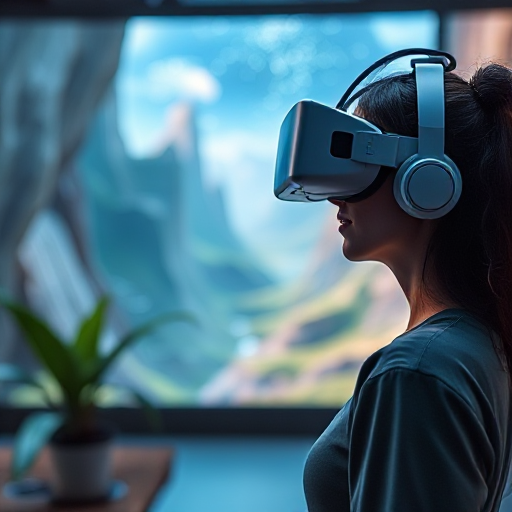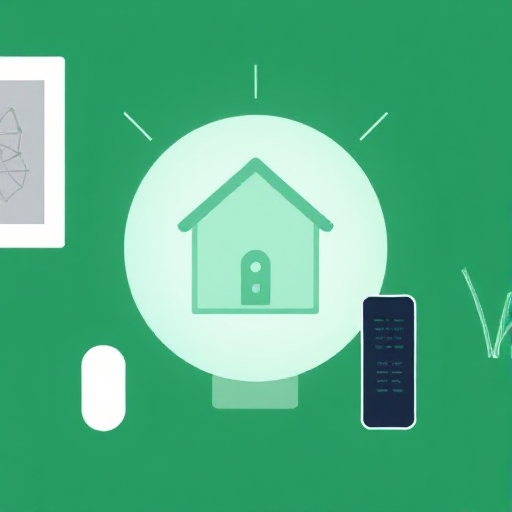
Virtual Reality (VR) and Augmented Reality (AR) are transforming how we interact with the digital world. These technologies have applications in gaming, education, healthcare, design, entertainment, and beyond. If you’re looking to dive into VR and AR development, taking an online course is an excellent way to start. Below, we’ll explore some of the best online courses available, each offering unique insights and skills to help you master VR and AR.
1. Coursera – “Virtual Reality Specialization” by the University of California, San Diego
Level: Beginner to Intermediate
Duration: 5 months (at 5 hours per week)
Cost: Free (with a fee for certification)
Overview:
Coursera offers a comprehensive Virtual Reality Specialization through UC San Diego that introduces you to VR concepts, tools, and development techniques. This series of courses explores key topics such as 3D modeling, VR development with Unity, and human-computer interaction. It provides hands-on projects that help you build VR experiences and apps using Unity and Unreal Engine.
Why it’s great:
- You’ll work with both Unity and Unreal Engine, two of the most popular game development platforms.
- The course is designed to give you both theoretical and practical knowledge of VR.
- The specialization includes peer-reviewed assignments, making it great for hands-on learners.
Who it’s for:
Beginners interested in understanding the fundamentals of VR development.
Link: Coursera – Virtual Reality Specialization
2. Udacity – “VR Developer Nanodegree”
Level: Intermediate to Advanced
Duration: 4 months (at 10 hours per week)
Cost: $399/month
Overview:
Udacity’s VR Developer Nanodegree is a highly immersive program that covers advanced VR development. The course provides extensive practical work with VR development platforms like Unity and VR hardware like the Oculus Rift. You’ll learn about building VR environments, creating interactive user interfaces, implementing real-time 3D, and optimizing VR experiences for various devices.
Why it’s great:
- You will gain real-world experience working with industry-standard tools and hardware.
- The Nanodegree comes with personalized mentorship and feedback from experts in the field.
- A strong focus on project-based learning and portfolio building.
Who it’s for:
Intermediate developers with some experience in coding or game development who are looking to specialize in VR.
Link: Udacity – VR Developer Nanodegree
3. LinkedIn Learning – “Augmented Reality for Developers”
Level: Beginner to Intermediate
Duration: 1 hour 53 minutes
Cost: Free with a LinkedIn Learning subscription
Overview:
This short course on LinkedIn Learning offers an introductory look into augmented reality development for those new to the field. It focuses on ARCore (for Android) and ARKit (for iOS) and teaches how to develop AR applications that run on mobile devices. You’ll also explore how to implement AR content into the real world using these AR platforms.
Why it’s great:
- Short, easy-to-digest course that can be completed quickly.
- Focuses on mobile AR development, which is essential as AR continues to grow in mobile applications.
- Provides practical demonstrations and examples that you can immediately apply to projects.
Who it’s for:
Developers and mobile app creators who want to dive into AR quickly without an extensive time commitment.
Link: LinkedIn Learning – Augmented Reality for Developers
4. Udemy – “Complete Guide to Augmented Reality with Unity & Vuforia”
Level: Beginner to Advanced
Duration: 14.5 hours
Cost: $19.99 (discounted price, often on sale)
Overview:
This Udemy course focuses on creating augmented reality experiences using Unity and Vuforia, two of the most widely used platforms in AR development. You will learn how to create interactive AR applications, develop virtual objects that react to the real world, and integrate Vuforia with Unity to create dynamic AR experiences.
Why it’s great:
- Vuforia is one of the most popular AR SDKs, and this course gives you extensive hands-on experience with it.
- The course is project-driven, allowing you to build real-world AR apps.
- You will be taught to develop AR for both Android and iOS platforms.
Who it’s for:
Developers with some knowledge of Unity and a desire to build AR applications.
Link: Udemy – Complete Guide to Augmented Reality
5. edX – “AR and VR for Business” by the University of Michigan
Level: Beginner
Duration: 6 weeks (3-5 hours per week)
Cost: Free (with a fee for certification)
Overview:
This edX course by the University of Michigan focuses on the application of AR and VR in business environments. It teaches how businesses can leverage these technologies for marketing, training, and other professional applications. You will gain an understanding of how AR/VR can be integrated into existing business operations and how to design immersive experiences that improve consumer engagement.
Why it’s great:
- Excellent for professionals interested in AR/VR applications in business.
- Teaches both technical and strategic insights into VR and AR technologies.
- A great blend of theory and practical insights.
Who it’s for:
Business professionals, marketers, and entrepreneurs looking to use AR/VR in a business context.
Link: edX – AR and VR for Business
6. FutureLearn – “Introduction to Augmented Reality and ARCore”
Level: Beginner
Duration: 3 weeks (5 hours per week)
Cost: Free (with a fee for certification)
Overview:
FutureLearn offers an introductory course on augmented reality, specifically focusing on ARCore, Google’s AR platform for Android devices. This course will help you get started with building AR applications, focusing on integrating real-world data with virtual content, and creating immersive experiences.
Why it’s great:
- Provides a strong foundation in AR development using ARCore.
- Interactive, with practical coding challenges and projects.
- Free to take with an option to purchase a certificate.
Who it’s for:
Beginners who want to learn AR development specifically for mobile devices.
Link: FutureLearn – Introduction to Augmented Reality
7. Pluralsight – “Building VR Experiences with Unity”
Level: Intermediate
Duration: 3 hours
Cost: Subscription-based (Free trial available)
Overview:
Pluralsight offers a course focused on building VR experiences using Unity. You’ll dive into creating VR environments, setting up interactions, and optimizing VR experiences for various VR headsets. The course is ideal for developers who want to learn VR from a practical, application-driven perspective.
Why it’s great:
- High-quality content, often produced by experts in the field.
- Detailed focus on creating high-performance VR apps in Unity.
- Great for developers who want to hone their Unity skills in VR development.
Who it’s for:
Intermediate Unity users who want to focus on VR development.
Link: Pluralsight – Building VR Experiences with Unity
With the growing adoption of VR and AR technologies across industries, the demand for skilled developers is on the rise. These courses provide a wide range of learning experiences, from foundational introductions to AR/VR to advanced, specialized development skills. Whether you are a beginner or an experienced developer, there’s a course to help you advance in the field of AR and VR.
When choosing a course, consider factors like your current skill level, the platform you wish to develop for (e.g., Unity, Unreal Engine, Android, iOS), and your ultimate goals in AR and VR development. As you progress through these courses, you’ll build the knowledge and portfolio needed to contribute to this exciting and rapidly-evolving field.






